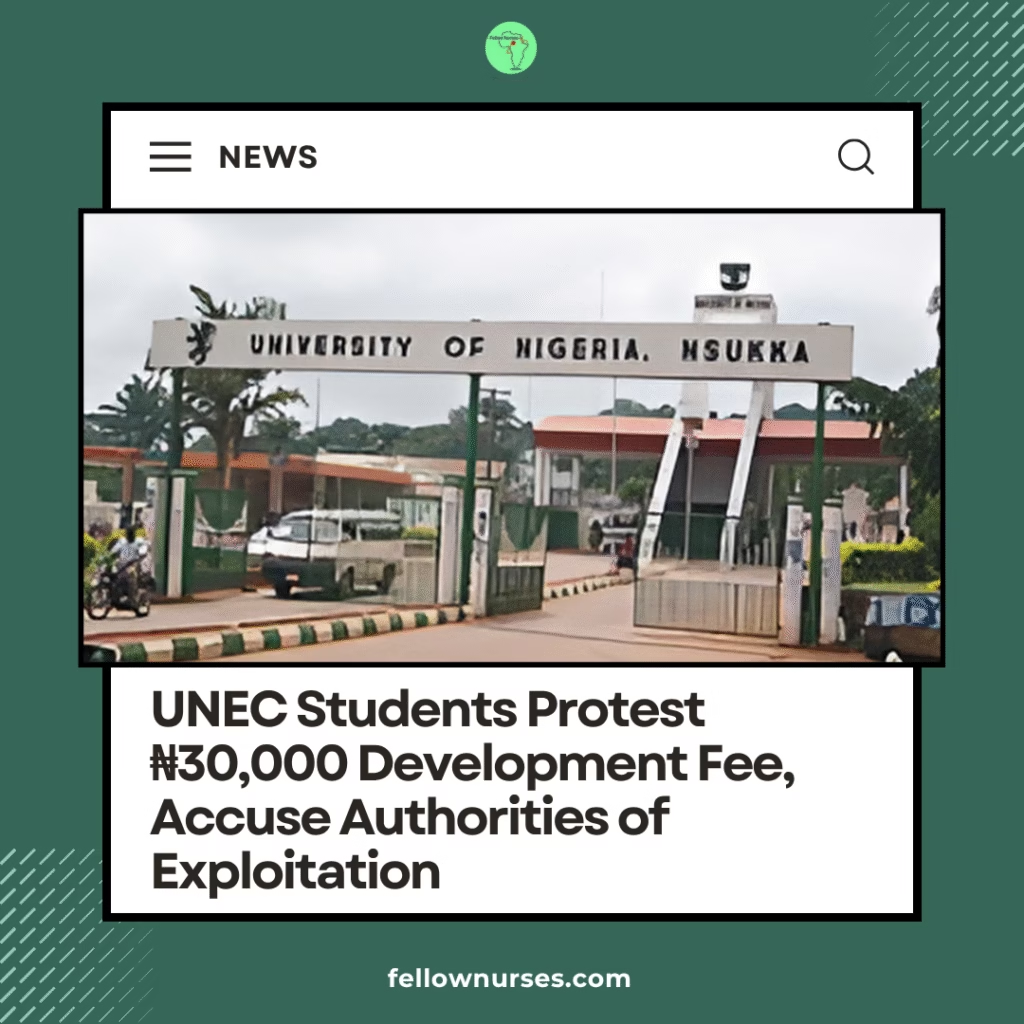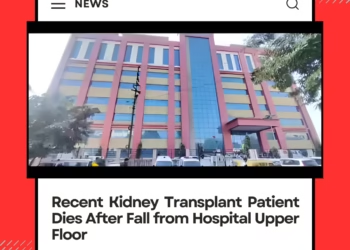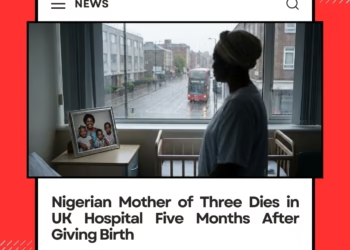
Tension has risen at the University of Nigeria, Enugu Campus (UNEC), as hundreds of medical students staged a protest against a newly introduced ₦30,000 compulsory “development fee.” The students described the charge as exploitative and unnecessary, calling it “daylight extortion.”
The Protest
On Thursday morning, the visibly frustrated students marched through the campus, holding placards and chanting solidarity songs. Many gathered in front of administrative buildings, demanding an explanation from school authorities over the new levy.
In several viral videos from the scene, students could be heard confronting university officials and asking pointed questions such as, “Is it the students’ duty to develop the university?”
They argued that similar charges had already been included in their regular tuition payments, questioning the rationale behind imposing an additional mandatory fee.
Students Speak Out
Some protesters claimed that students who had not paid the ₦30,000 fee were barred from writing exams — a move that fueled further outrage. Others lamented that the timing of the charge was insensitive, especially given the economic hardships facing many Nigerian families.
“This isn’t fair,” one student said. “We already struggle with high tuition, accommodation, and transport costs. Adding another ₦30,000 makes life harder for students and parents.”
University Response Pending
As of press time, the UNEC management had not issued an official statement on the matter. Calls and emails to the university’s Public Relations Department went unanswered.
Observers, however, have urged the institution to engage in dialogue with student representatives to prevent further escalation of tensions.
Wider Context
The protest at UNEC reflects a broader concern across Nigerian universities about rising levies and hidden fees. Students nationwide have repeatedly called for greater transparency in how public institutions manage development funds and allocate charges.
For many, the UNEC protest signals a growing frustration with what they describe as systemic financial exploitation within higher education.
Fellow Nurses Africa is the independent voice of African nursing. We educate, inform and support nurses across Africa.










